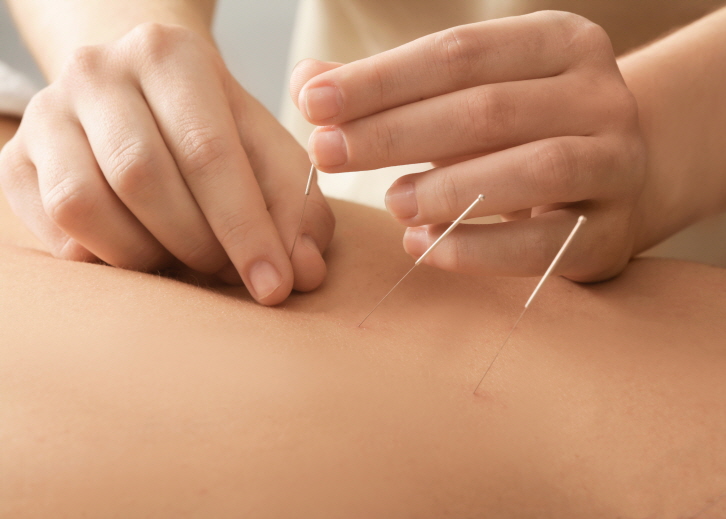
Unveiling the Ancient Art: How Acupuncture Needles Can Relieve Modern Ailments
For millennia, the delicate dance of needles across the body has been a cornerstone of Traditional Asian Medicine. Using needles to control nervous system the acupuncturist directs the body where to heal itself and restore the balance of the body. As the needles are inserted into the corresponding energetic pathways (or meridians) energy is unblocked, a new equilibrium is created, endorphins are released and the nervous system encourages healing.
This practice, known as acupuncture, has transcended continents and cultures, evolving from a revered secret to a recognized form of holistic medicine. But beyond the mystique lies a potent therapy backed by science and endorsed by global health organizations. Let’s delve deeper into the world of acupuncture, exploring its benefits, the fascinating mechanism behind its success, and the weight of evidence supporting its effectiveness.
A Symphony of Relief: Addressing a Multitude of Concerns
Acupuncture isn’t a one-size-fits-all solution. This personalized approach tailors treatment to your specific needs. From chronic pain to emotional imbalances, acupuncture can offer a natural path to a better you. Here’s a glimpse into its diverse applications:
Pain Management: Stubborn backaches, throbbing headaches, and achy joints – acupuncture can be a powerful weapon in your pain-relief arsenal. Studies show its effectiveness in managing conditions like osteoarthritis, chronic low back pain, and even migraines.
Stress and Anxiety: Feeling overwhelmed? Acupuncture can help! By stimulating the nervous system, it promotes relaxation and reduces cortisol (the stress hormone), leaving you feeling calmer and more centered.
Digestive Issues: Nausea, indigestion, and irritable bowel syndrome (IBS) can disrupt your day-to-day life. Acupuncture can soothe the digestive tract, alleviate symptoms, and promote a healthier gut.
Sleep Disorders: Tossing and turning all night? Acupuncture can help regulate your sleep cycle, promoting deeper, more restful sleep.
Allergies and Seasonal Ailments: Stuffy nose, watery eyes, and scratchy throat – acupuncture can offer relief from allergy symptoms and boost your immune system’s response.
Beyond the Needles: Unveiling the Mechanism
Acupuncture needles are more than just pricks in the skin. They strategically target acupoints – specific points on the body’s energy meridians believed to be channels for the flow of vital energy (qi). By stimulating these acupoints, acupuncture is thought to:
Modulate the Nervous System: Needles trigger the release of endorphins, the body’s natural pain relievers, and other neurotransmitters, promoting relaxation and pain relief.
Improve Blood Circulation: Acupuncture may increase blood flow to targeted areas, promoting healing and reducing inflammation.
Regulate the Immune System: Studies suggest acupuncture can stimulate the immune system, potentially enhancing the body’s ability to fight off illness.
Efficacy and Effectiveness: A Global Consensus
Acupuncture isn’t just ancient wisdom; it’s a practice backed by research and endorsed by leading health institutions. Here’s a look at the weight of evidence supporting its efficacy:
World Health Organization (WHO): The WHO recognizes acupuncture as an effective treatment for a variety of conditions, including pain syndromes, nausea, and vomiting.
National Institutes of Health (NIH): The NIH acknowledges the growing body of evidence supporting the use of acupuncture for pain management.
Asian Medical Associations: Leading Asian medical associations, such as the Japan Society of Oriental Medicine and the Korean Acupuncture and Moxibustion Society, actively promote and advocate for the use of acupuncture as a valid medical therapy.
Experience the Power of Balance: Consider Acupuncture Today
Acupuncture offers a natural, drug-free approach to well-being. Whether you’re seeking pain relief, improved sleep, or a boost to your overall health, acupuncture can be a valuable addition to your wellness journey. Consult a licensed acupuncturist today and embark on a path to holistic healing, one gentle needle at a time.
The World Health Organization(WHO) published a review and analysis of controlled clinical trials on acupuncture. They listed the following as “Diseases, symptoms or conditions for Adverse reactions to radiotherapy and /or chemotherapy
• Allergic rhinitis (including hay fever)
• Biliary colic
• Depression (including depressive neurosis and depression following stroke)
• Dysentery, acute bacillary
• Dysmenorrhoea, primary
• Epigastralgia, acute (in peptic ulcer, acute and chronic gastritis, and gastrospasm)
• Facial pain (including craniomandibular disorders)
• Headache
• Hypertension, essential
• Hypotension, primary
• Induction of labour
• Knee pain
• Leukopenia
• Low back pain
• Malposition of fetus, correction of
• Morning sickness
• Nausea and vomiting
• Neck pain
• Pain in dentistry (including dental pain and temporomandibular dysfunction)
• Periarthritis of shoulder
A decade of acupuncture imaging research has shown that “people who get better with acupuncture have clear charges in their brain function,” says dr. John Farrar, a pain researcher at the university of Pennsylvania School of Medicine. Charges are seen in the thalamus, a brain region that processes information from the sense, including touch and also pain.
